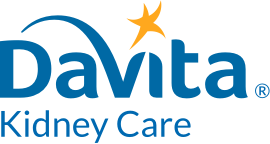DaVita Upgraded at UBS, Shares Gain 3%

UBS upgraded DaVita's (NYSE:DVA) rating from Neutral to Buy, revising the price target upwards from $100.00 to $142.00. As a result, shares gained more than 3% yesterday.
The firm’s rationale hinges on notable positive revisions to the 2024 forecasts for EBIT, which is now anticipated to reach $1.793 billion, and EPS, projected at $9.00. Both these estimates significantly surpass Street consensus figures.
The bank’s viewpoint underscores the anticipation of a turning point in treatment growth, expected in the second and third quarters, followed by a more pronounced surge in 2024. This growth trajectory is reinforced by improved pricing strategies and a more streamlined cost structure, integrating savings from the End Stage Renal Disease Seamless Care Organizations (ESA) and clinic closures.
| Symbol | Price | %chg |
|---|---|---|
| SRAJ.JK | 11000 | -0.23 |
| MIKA.JK | 2610 | 3.83 |
| SILO.JK | 1875 | 0.27 |
| HEAL.JK | 1540 | -0.97 |

DaVita Inc. (NYSE:DVA) Overview: A Deep Dive into Financials and Strategic Initiatives
- DaVita Inc. (NYSE:DVA) is significantly involved in value-based care initiatives, launching 11 new arrangements and expanding to 22 Kidney Contracting Entities (KCEs).
- The company's financial metrics present a mixed picture, with a P/E ratio of 12.58 and a negative debt-to-equity ratio of -46.13, indicating potential financial risk.
- Berkshire Hathaway Inc., a major shareholder, recently sold 19,330 shares of DaVita, yet still retains a significant stake, indicating ongoing interest in the company's future.
DaVita Inc. (NYSE:DVA) is a prominent player in the kidney care industry, providing comprehensive services to patients with kidney disease. The company operates over 3,000 outpatient dialysis centers worldwide, with a significant presence in the United States. DaVita's commitment to improving patient outcomes is evident in its support for the Kidney Care Choices (KCC) Model, which aims to enhance care through collaboration and patient engagement.
DaVita's involvement in value-based care initiatives has been a key focus for the company. Since 2022, it has launched 11 value-based care arrangements, expanding to 22 Kidney Contracting Entities (KCEs). These efforts have resulted in increased transplantation rates and improved dialysis access, contributing to better health outcomes for patients. The company's dedication to value-based care aligns with its goal of reducing hospitalizations and improving mortality rates.
Financially, DaVita presents a mixed picture. The company's price-to-earnings (P/E) ratio of 12.58 suggests a moderate market valuation of its earnings. However, its price-to-sales ratio of 0.79 indicates a relatively low market valuation compared to its revenue. The enterprise value to sales ratio of 1.71 reflects the company's total valuation in relation to its sales, while the enterprise value to operating cash flow ratio of 9.49 shows how its valuation compares to cash flow from operations.
DaVita's financial metrics also reveal some challenges. The company has a negative debt-to-equity ratio of -46.13, indicating a higher level of debt compared to its equity. This could be a concern for investors, as it suggests potential financial risk. However, DaVita maintains a current ratio of 1.25, indicating a reasonable level of liquidity to cover short-term liabilities, which may provide some reassurance.
In recent developments, Berkshire Hathaway Inc., a 10 percent owner of DaVita, executed a sale of 19,330 shares of the company's common stock at approximately $138.59 per share. Despite this sale, Berkshire Hathaway still holds a significant stake in DaVita, with 33,880,485 shares remaining. This transaction, documented in Form 4 on the SEC's website, highlights ongoing interest and investment in DaVita's future.

DaVita Upgraded at UBS, Shares Gain 3%
UBS upgraded DaVita's (NYSE:DVA) rating from Neutral to Buy, revising the price target upwards from $100.00 to $142.00. As a result, shares gained more than 3% yesterday.
The firm’s rationale hinges on notable positive revisions to the 2024 forecasts for EBIT, which is now anticipated to reach $1.793 billion, and EPS, projected at $9.00. Both these estimates significantly surpass Street consensus figures.
The bank’s viewpoint underscores the anticipation of a turning point in treatment growth, expected in the second and third quarters, followed by a more pronounced surge in 2024. This growth trajectory is reinforced by improved pricing strategies and a more streamlined cost structure, integrating savings from the End Stage Renal Disease Seamless Care Organizations (ESA) and clinic closures.







